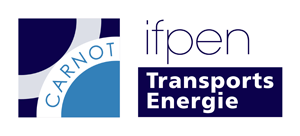 Electrified Mobility
Electrified Mobility
Overview and challenges
Globally, the transport sector is responsible for 24% of greenhouse gas emissions (GGEs) (31% in France). To reduce them on a local level, recourse to electric energy is intensifying across all market segments and in every country, from private vehicles to the public transport and haulage sectors.
In addition, the electrification of transport makes it possible to:
- significantly reduce local pollutant and CO2 emissions,
- improve the energy footprint of vehicles, thanks, for example, to braking energy recovery.
The technological efforts required concern:
- electric machines and their associated power electronics (inverters and control),
- electrochemical storage solutions (batteries) and their control,
- fuel cells as an alternative to batteries,
- the electrification of powertrain functions such as the turbocharger,
- energy recovery systems, based on organic Rankine cycles (ORC) for example, to reuse the thermal energy lost in the exhaust gases of hybrid IC engines or the cooling system of IC engines, or even fuel cells.
A substantial reduction in sales prices, the roll-out of rapid recharging infrastructures and the development of government incentive policies to increase market shares are the three principal challenges to be met to ensure electric engines become a sustainable and large-scale alternative to IC engines in the global vehicle fleet.
Electric vehicles could make up between 6 and 9% of the global vehicle fleet by 2030 (compared to less than 1% in 2016) – Source Foley.
Promoting “zero emissions mobility” thanks to highly energy-efficient technologies: such is IFPEN's strategy
in the field of system and component electrification.
Our solutions Our networks Our strengths









